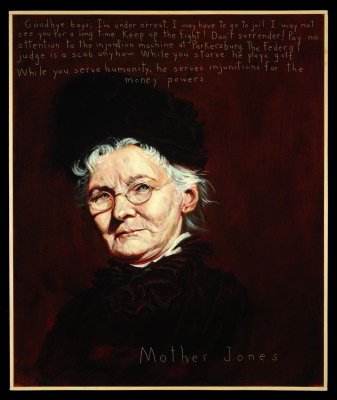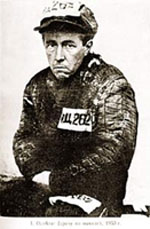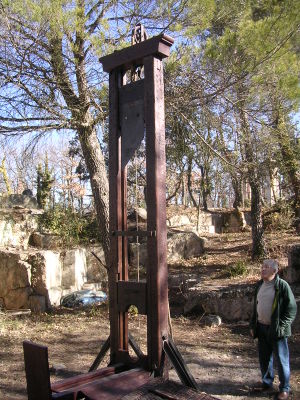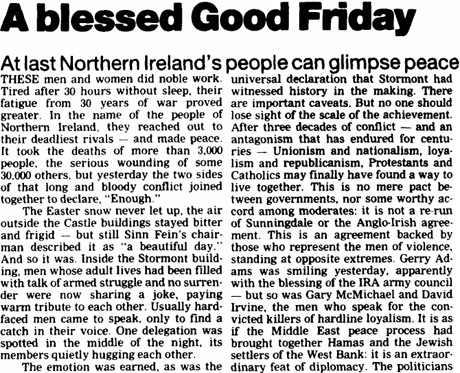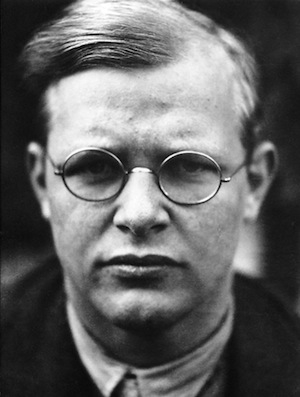
Bonhoeffer was on the menu this past February at the always-strange National Prayer Breakfast in Washington. During his keynote speech, bestselling conservative author Eric Metaxas claimed that George W. Bush had recently read his 2010 biography of Bonhoeffer. Then he handed a copy of the 608-page doorstop to the man sitting a few feet away from him—Barack Obama—and said jejunely, “No pressure.” With Obama straining to smile, Metaxas also suggested that legal abortion was akin to Nazism.
Bonhoeffer is in perpetual “vogue,” as the Christian literary review Books & Culture has pronounced. That’s an ironic way of commending the clergyman who railed against superficiality in all matters religious, and could not indulge what he called “cheap grace,” the easy path to discipleship.
One lesson of Bonhoeffer’s witness is that the Christian Church must always be a church, must always pay ultimate loyalty to God, not to false gods, which for Bonhoeffer included Nazi ideology. While still in his twenties, Bonhoeffer, who began his theological career at the University of Berlin, emerged at the forefront of the Confessing Church, an ecclesial movement that arose in 1934 with a call for German Christians to resist the Third Reich.
Bonhoeffer’s Choice
There are incongruities in the Bonhoeffer story, and the most tantalizing has to do with the choice that sealed his martyrdom. He was a pacifist who never renounced his belief that violence is antithetical to Christian faith, as revealed by Jesus in the Sermon on the Mount. And yet beginning in early 1938, he joined in a succession of conspiracies to murder Hitler, while spying for the Allies. This turn from pure nonviolence has led some, including conservative Christians like Metaxas, to fancy that Bonhoeffer would have cheered America’s wars in Afghanistan and Iraq.
But this conjecture seems to miss an essential point about the man and his thinking. Scholars note that Bonhoeffer—who recorded his thoughts in letters smuggled out of prison—did not rationalize his actions other than to say that the situation was extreme. The theologian felt that his decision to join in the conspiracies against the Fuhrer “was not justified by law or principle, but rather was a free act of Christian responsibility, for which he threw himself on the mercy of God,” Clifford Green, a Lutheran minister and eminent Bonhoeffer scholar who taught at Hartford Theological Seminary, told me a few years ago.
This ethic may be too subtle for retail politics, but it’s powerful still. In the most acute moral emergencies, we can do what we have to do, to stop a tyrant or head off genocide. But let’s not fool ourselves. There will be plenty to atone for, and little cause for self-congratulation.
What is indisputable is that Bonhoeffer accepted “the cost of discipleship,” which are the title words of his 1937 classic. On the morning of April 9, 1945, at the Flossenburg concentration camp, he was stripped, led naked to the gallows, and hung for his part in the plots to assassinate Hitler. At that moment, historians say, Bonhoeffer could hear American artillery in the distance.
He was 39 years old. Two weeks later, the Allies liberated the city. …read more
